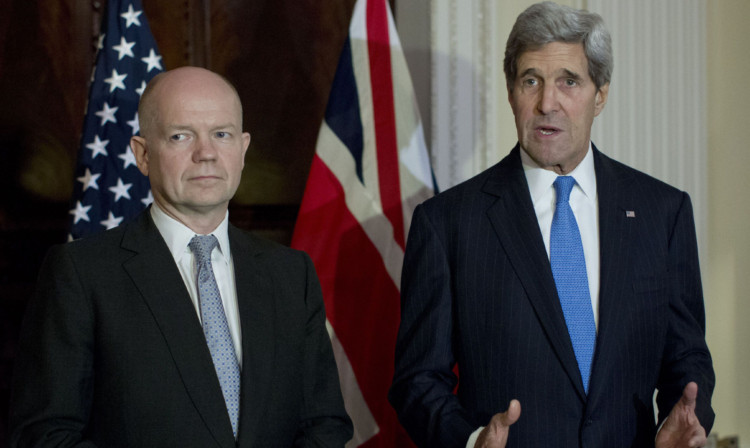Sanctions against Iran will continue to be “robustly” enforced, David Cameron has insisted, as the West seeks to assure Israel that it is serious about preventing the Islamic state getting a nuclear weapon.
A deal struck after lengthy negotiations in Geneva commits Iran to curb its nuclear activities for six months in exchange for limited and gradual relief from some sanctions, including access to £2.5 billion from oil sales.
But the Prime Minister said the remaining measures would continue to be fully implemented in order to maintain pressure on Tehran to reach a final, comprehensive accord.
The interim deal struck by negotiators from the UK, US, France, Germany, Russia and China with Iran met with a hostile response in Israel.
Israeli prime minister Benjamin Netanyahu called the deal a “historic mistake” and claimed the international community had given up too much to Iran.
He added the world “became a much more dangerous place because the most dangerous regime in the world made a significant step in obtaining the most dangerous weapons in the world”.
But Mr Cameron insisted the deal was an “important first step” and demonstrated the power of diplomacy.
The package includes freezing Iran’s ability to enrich uranium at a maximum 5% level, well below the threshold for weapons-grade material.
The Prime Minister said: “We now have an international agreement with Iran that moves it further away from getting a nuclear weapon.
“This is an important first step, which must now be fully implemented. We will continue to enforce sanctions robustly in order to secure a comprehensive and final settlement that fully addresses the real and substantive concerns of the international community.”
US secretary of state John Kerry, in London for talks with Foreign Secretary William Hague, said “now the really hard part begins”.
“That is the effort to get the comprehensive agreement which will require enormous steps in terms of verification, transparency and accountability,” he said.
Mr Hague, who like Mr Kerry travelled to Geneva to give added impetus to the negotiations in the final stages, acknowledged Israel and Saudi Arabia had “legitimate concerns” about the agreement.
He said: “They do all have very legitimate concerns about Iran’s nuclear programme and it’s not surprising that people will be sceptical about any agreement.
“After all, Iran also has a history of not revealing the truth about its nuclear programme to the rest of the world.
“But this is the first time that Iran has entered into an agreement with other nations, with the international community, about what to do about its nuclear programme.”
US president Barack Obama spoke to Mr Netanyahu about the deal and acknowledged Israel had “good reason to be sceptical about Iran’s intentions”, the White House said.
Mr Obama said the months ahead would be used to “pursue a lasting, peaceful, and comprehensive solution that would resolve the international community’s concerns regarding Iran’s nuclear programme”.
